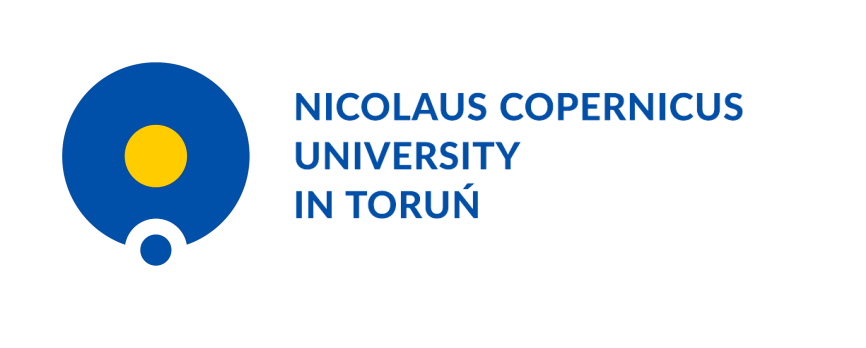Nanoscale Biophysics
Nanoscale Biophysics covers the following research areas: biophysics, interdisciplinary application of computer science, biotechnology and microbiology, nanotechnology and nanoscience, as well as atomic, molecular and chemical physics.
Team leader – Karolina Mikulska-Ruminska, PhD
The scientific activities of the “Nanoscale Biophysics” research field focus on research concerning interdisciplinary biophysics at the molecular level and include three interlocking lines of research involving:
- Development of computational methods and advanced data analysis – The project aims to develop new theories and methods, as well as data analysis algorithms related to computational biophysics. One of the subjects will be the identification of diffusion pathways of small molecules, i.e., ligands, in biophysical systems by enhanced sampling using machine learning. The goal is to observe energy transitions on a much shorter computational time scale than is possible with classical approaches. The method is being developed by team members, and the latest computer implementations are freely available to other researchers through the PLUMED package. Other research will involve advanced analysis of data from FRET non-radiative energy transfer spectroscopy experiments or the development of new methods related to modeling the dynamics of biological systems.
- Application of molecular computational biophysics methods for biomedical and biotechnological research – This research involves two streams. The first aims to apply computational biophysics and bioinformatics methods to assess the role of different types of bioactive lipid mediators and their interactions with key proteins in regulated cell death processes, including apoptosis (cytochrome) and ferroptosis (lipoxygenase). The second stream will focus on studying bacterial enzymes used in the biotechnological processing of chemicals, cosmetic ingredients, and food additives. Computational biophysics methods will be used to improve such enzyme properties as activity, thermostability and selectivity. Both streams of research will work tightly with experimental groups (USA, China). The synergy of theoretical research made at our university and experiments performed in other laboratories will allow us to understand better the molecular basis of processes in living organisms at the nanoscale.
- Biophysical and biochemical experiments for single biomolecules and selected cells – the aim of this research is to use available atomic force microscopes to image and study the nanomechanics of proteins essential for the nervous system. We will extend the measurement range of small forces for single molecules into the sub-100 pN region by building a new instrument based on the idea of magnetic tweezers. We will develop new biomaterials based on graphene oxide and asparaginase, an enzyme with potential applications in cancer therapy. Topics in the area (iii) are also related to new sensors. We will study experimentally and theoretically (computer modeling – docking and dynamics simulations) purinergic receptors (P2X7) as well as their interactions with ligands and mitotic factors (neuroligin 3). An important practical aspect of biophysical research in this area will be a deeper understanding of muscarinic receptors and insect sodium channels. We will look for neuroactive substances that can help fight malaria. Moreover, we will use advanced electrophysiological and computational methods. We plan to collaborate with experts from France and the US.
Research conducted within the “Nanoscale Biophysics” field uses a strongly interdisciplinary approach. The planned studies will develop new computational methods and new methods of data analysis (computational and experimental). The computational biophysics methods will help elucidate the molecular mechanisms of important biophysical processes involving small-molecule ligands. Research may contribute to the development of drugs for diseases associated with regulated cell death and to better biotechnological tools (improved techniques for obtaining natural sweeteners and antioxidants will emerge). In addition, experimental studies, supported by modeling, will provide insights into the function of membrane receptors important in neural processes and cancer development. We hope to develop new types of biosensors.
The research field includes close cooperation between scientists from the Faculty of Physics, Astronomy and Informatics, Faculty of Biological and Veterinary Sciences and Faculty of Chemistry representing such scientific disciplines as physical sciences, chemical sciences, biological sciences and technical sciences (computer science), respectively.
The scientific team working within the emerging research field of “Nanoscale Biophysics” cooperates with foreign centers, including, among others, from the USA, China, Australia, Brazil or Europe (France, Finland). Further expansion of cooperation to other scientific centers (including Japan and the Netherlands) is planned.
Dr Karolina Mikulska-Rumińska is an employee of the Faculty of Physics, Astronomy and Applied Informatics (WFAiIS) at the Nicolaus Copernicus University. She was born in 1985 in Toruń. In 2009, she graduated in physics with a medical specialty at WFAiIS UMK and began her doctoral studies at the then Department of Biophysics and Medical Physics. In 2014, being among the top 5% of students, she defended with distinction her doctoral dissertation in biophysics entitled. “Use of computer simulation methods to interpret the results of force spectroscopy of single biomolecules,” written under the supervision of Prof. Wieslaw Nowak, PhD. She has completed two international research internships: (i) at École Polytechnique Fédérale de Lausanne (EPFL) in Switzerland in the group of Prof. G. Dietler (6 months) and (ii) a postdoctoral fellowship at the School of Medicine at the University of Pittsburgh (USA, 2.5 years) in the group of Prof. I. Bahar. She has participated in >10 grants (including National Science Center (NCN), Ministry of Science and Higher Education (MNiSW) or National Institutes of Health (NIH)), including eight as a leader/beneficiary. She has received National Science Center PRELUDIUM3 and SONATA15 grants. In addition, she also completed a research internship at the pharmaceutical company ADAMED (Poland) and was responsible as Project Manager for the computational part of a grant obtained from the pharmaceutical company Shire (USA). She is the recipient of >10 scholarships, including last year’s L’Oréal-UNESCO For Women and Science in the postdoctoral category (3 women per year in Poland), the Sciex-NMSch international scholarship, the scholarship of the Minister of Science and Higher Education for doctoral students, or the Marshall Scholarship. In 2022, she was the recipient of the prestigious L’Oréal-UNESCO International Rising Talents 2022 award, given annually to 15 “rising talents” of science – women whose research can change the world. To date, only four Polish women have received this award in 20 years. She has presented the results of her research at more than 30 national and international conferences, including papers in the US, Spain and Germany. She has spent the last six years intensively studying the process of ferroptosis occurring in neurodegenerative diseases, cancer, asthma and sepsis, among others. Her publications containing breakthroughs on the phenomenon of ferroptosis have been published in Cell or Nature Chemical Biology, among others, and are widely cited around the world. In addition to the intensively studied process of ferroptosis, Dr. Mikulska-Ruminska is involved in several other scientific projects, including the creation of new computer tools available in the ProDy program (> 2.3 million downloads) for comprehensive analysis of sequences, protein structures and results of computer simulations. These tools are widely used by the scientific community. In 2021, she was included in the list of the 100 most inspiring Polish women of 2021 according to “Forbes Women,” and in 2022 she received the “Digital Republic” award (from the daily newspaper “Rzeczpospolita”) for her contribution to Poland’s digital transformation and implementation of new technologies.


 ul. Gagarina 7, 87-100 Toruń
ul. Gagarina 7, 87-100 Toruń